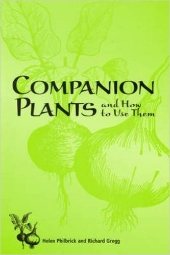Source:Amazon
Publisher: Bio-dynamic Farming and Gardening Assoc.
Summary
From Amazon: "This wonderful little book covers everything you need to know about the types of plants known as weeds. Ehrenfried Pfeiffer discusses the different varieties of weeds, how they grow and what they can tell us about soil health. The process of combating weeds is discussed in principle as well as in practice, so that it can be applied to any situation. First written in the 1950s, this is still one of the best overviews of the subject available."
Where to get it?
Amazon US
Amazon CA
Amazon UK
Amazon AU
Related Videos
Related Podcast
Maddy Harland
What weeds tell us podcast
Listener Questions
Related Threads
Weeds and soil analysis
weeds and soil
Biodynamics
Related Websites
What Weeds Tell You About Your Soil
What Weeds Tell Us About Soil 









